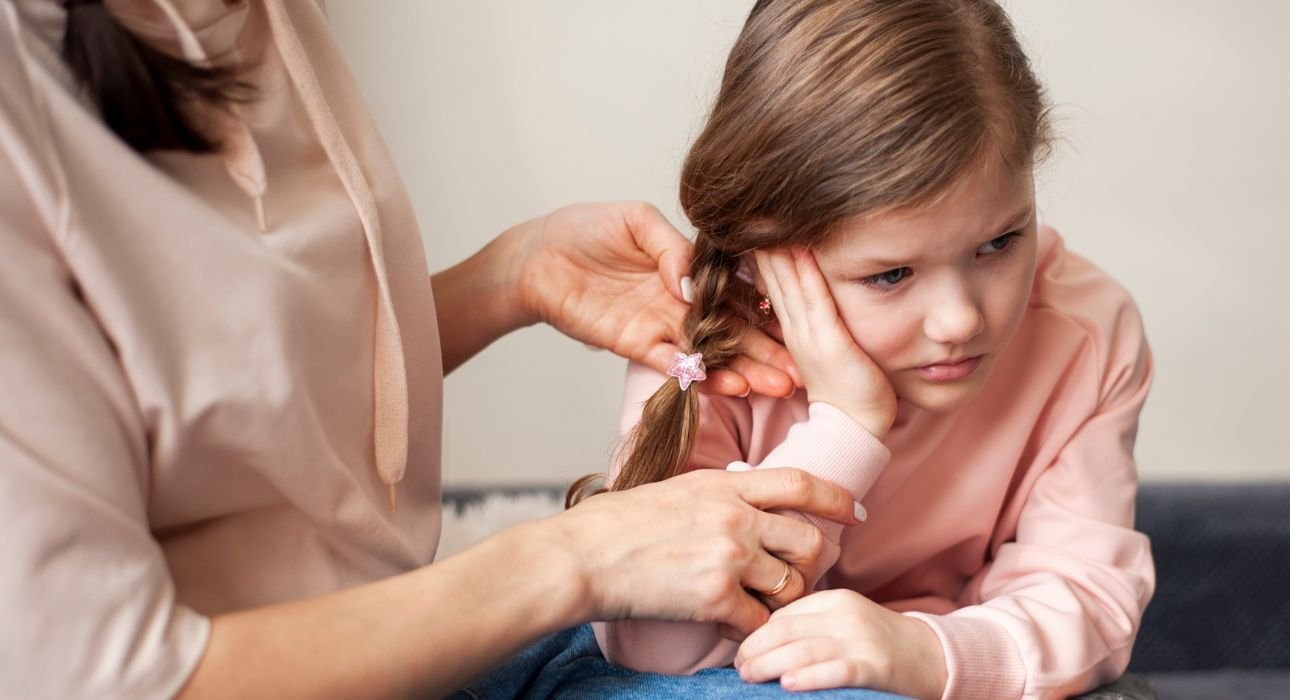Imagine a child in a classroom, hands twitching, eyes blinking rapidly, letting out an unexpected grunt. The room gets quiet. The teacher pauses. Peers giggle or stare. What no one sees is the invisible storm beneath the surface of a neurological tempest named Tourette Syndrome. Often misunderstood, Tourette Syndrome (TS) is more than the tics that define it. It’s a tale of resilience carefully woven into childhood, neurological complexities, and unseen effort.
The Unseen Onset: When Tics Begin
Known by the ICD-11 code 8A05.00, Tourette Syndrome is a chronic tic disease that manifests as both motor and phonic (vocal) tics that start during the formative period and last for more than a year. For most people, it starts quietly. Usually between the ages of 4 and 6, a youngster may begin to shrug, blink excessively, or make mild sounds like throat clearing or humming. These motions are involuntary, abrupt, and nonrhythmic manifestations of a brain that interprets signals differently; they are neither habit nor attention-seeking behaviours.
While many children have temporary tics, TS tics are persistent, fluctuate in strength, and eventually change. Between the ages of 8 to 12, the tics often reach their climax. During this period, a kid may start to detect what are known as premonitory drives, which are sensations or pressures in the body that build up before a tic and can only be eased by performing it. It is comparable to suppressing a yawn or sneeze, but it occurs dozens of times a day, frequently in public, and is never within the child’s control.
Beyond the Tics: The Inner Landscape
Tourette Syndrome rarely travels alone. Children with TS frequently struggle with co-occurring conditions such as:
- Attention Deficit Hyperactivity Disorder (ADHD), which encompasses hyperactivity, impulsivity, and inattention
- Obsessive-compulsive disorder, or OCD, is characterised by repetitive behaviours and intrusive thoughts.
- Anxiety and mood disorders
- Autism Spectrum Disorder (ASD) in some cases
The disturbance from this overlapping scene is frequently greater than that from the tics themselves. A youngster could have trouble staying quiet, have difficulty explaining their actions, and feel tense all the time. Consider a classroom. Nisha, a ten-year-old pupil, starts whistling softly while doing math. She twitches her eyes. She makes three consecutive touches on her desk. The instructor condemns her. Her classmates laugh. Nisha understands that not doing what she does makes her skin crawl, but she is unable to describe why. That is the unspoken struggle that many children with TS deal with every day.
Case in Point: Aarav’s Arc
Aarav was six when his parents noticed that his eye twitching wasn’t going away. By seven, he had developed repetitive throat-clearing sounds. Teachers called it disruptive, and his friends drifted away. At eight, he was diagnosed with Tourette’s Syndrome and ADHD. The diagnosis didn’t solve everything, but it gave Aarav a name for his experience. It provided his parents with a road map, which was more significant. They enrolled him in behavioural therapy, educated his school about his needs, and introduced mindfulness exercises at home. Today also Aarav still twitches, he still hum,s but he also laughs, draws cartoons, plays football, and speaks openly about his “buzzy brain.”
The Science of the Syndrome
What causes Tourette’s Syndrome?
While there’s no single known cause but research points to genetic and neurobiological factors. The abnormalities in dopaminergic pathways in the basal ganglia (a region involved in movement control) are strongly implicated. What distinguishes TS from other movements or psychiatric disorders is:
- Both phonic and motor tics are present.
- Their chronicity (persisting for more than one year)
- Onset during childhood or adolescence
- Exclusion of other causes (e.g., brain injury, substance use)
Crucially, symptoms come and go. After weeks of being tic-free, a youngster may revert when under stress. It’s interesting to note that tics lessen as a child sleeps and frequently stop while they are engaged in fun, concentrated activities.
Coping in the Real World: The Hidden Curriculum
Tourette Syndrome is a test not just for the child but for the systems around them. Educational settings in particular must evolve to accommodate rather than pathologise. A few essential strategies:
- CBIT (Comprehensive Behavioural Intervention for Tics): This gold-standard therapy trains children to recognise premonitory urges and substitute competing responses.
- Mindfulness and Relaxation: Yoga, meditation, and breathing techniques reduce stress-triggered tics.
- Peer education programs: Teaching classmates about TS builds empathy and curbs bullying.
- Educational accommodations: Extra breaks, alternative exam settings, and reduced penalties for verbal interruptions can make a world of difference.
- Parental training and support: Parents need both psychoeducation and a support network. Understanding that tics are not defiance is a crucial shift.
The Light Ahead: Prognosis and Hope
Here’s the good news: most children with TS improve dramatically by adulthood. About one-third experience full remission, and many more see symptoms reduce to a manageable level. Still, the quality of long-term outcomes often hinges on whether the child received early intervention, supportive environments, and treatment for co-occurring disorders. Those with only Tourette Syndrome and no comorbidities tend to fare better. Those with co-occurring ADHD, OCD, or anxiety may need extended care, but can still thrive with the right guidance.
Conclusion: From Tics to Triumph
Tourette Syndrome doesn’t need fixing; rather needs understanding. Every tic carries a silent backstory of a child learning to live with a brain wired differently, of parents turning into warriors, of teachers who choose patience over punishment. The journey with Tourette Syndrome is not linear but neither is childhood. The important thing is that children with TS aren’t only about their symptoms. They are inventors, visionaries, artists, and philosophers navigating a society that frequently misunderstands them while continuing to exist daily. Let’s meet them there with curiosity, compassion, and commitment.
FAQs
1. Is Tourette Syndrome caused by bad parenting or trauma?
No. Tourette Syndrome is not caused by parenting style, trauma, or emotional neglect. It is a neurodevelopmental disorder primarily linked to genetic and neurological factors. While environmental stress can worsen tics, it is not the root cause.
2. Can children with Tourette Syndrome control their tics?
Only partially and temporarily. Many children with TS can suppress their tics for short periods (especially in public or school), but this often leads to build-up of tension and more intense tics later. Suppression is exhausting and not sustainable. It’s not a matter of willpower.
3. Do all kids with Tourette Syndrome swear or shout obscenities?
No. The symptom known as coprolalia (involuntary swearing) occurs in only 10–15% of individuals with Tourette Syndrome. It’s a rare and often misunderstood symptom, sensationalised by the media. Most children with TS never experience it.
4. Can diet or lifestyle changes help reduce tics?
There’s no specific diet proven to treat Tourette’s Syndrome. However, reducing caffeine, sugar, and highly processed foods, maintaining good sleep hygiene, and minimising stress can help reduce tic severity. Always consult a healthcare professional before making major lifestyle changes.
5. Can children with Tourette Syndrome participate in sports or public performances?
Absolutely. Many children with TS thrive in sports, theatre, music, and academics. Physical activity and focused engagement can even help reduce tic severity temporarily. With support and awareness, children with TS can lead very successful and fulfilling lives.
References +
- Centers for Disease Control and Prevention. (2024). Data and Statistics on Tourette Syndrome. Retrieved from https://www.cdc.gov/tourette-syndrome/data/index.html
- Hirschtritt, M. E., et al. (2015). Lifetime Prevalence, Age of Risk, and Genetic Relationships of Comorbid Psychiatric Disorders in Tourette Syndrome. JAMA Psychiatry, 72(4), 325–333. https://jamanetwork.com/journals/jamapsychiatry/fullarticle/2110028
- Conelea, C. A., et al. (2011). Tourette disorder and other tic disorders. ScienceDirect. https://www.sciencedirect.com/science/article/abs/pii/B9780444640123000083
- Centers for Disease Control and Prevention. (2024). Other Concerns and Conditions of Tourette Syndrome. Retrieved from https://www.cdc.gov/tourette-syndrome/other concerns/index.html
- National Institute of Mental Health. (2010). Attention woes in kids with Tourette syndrome likely caused by co-occurring ADHD. Retrieved from https://www.nimh.nih.gov/news/science-updates/2010/attention-woes-in-kids-with tourette-syndrome-likely-caused-by-co-occurring-adhd
- Verywell Mind. (2008). The Link Between Tic Disorders and ADHD. Retrieved from https://www.verywellmind.com/tics-and-adhd-20563
- Cambridge University Press. (n.d.). Tourette syndrome in children and adolescents: aetiology, presentation and treatment. BJPsych Advances. Retrieved from https://www.cambridge.org/core/journals/bjpsych-advances/article/tourette-syndrome-in children-and-adolescents-aetiology-presentation-and-treatment/5615A2FDD12BE7107EB4296CFCD4E1CC
- NCBI Bookshelf. (2025). Tourette Syndrome and Other Tic Disorders – StatPearls. Retrieved from https://www.ncbi.nlm.nih.gov/books/NBK499958/
- Psychiatric Times. (n.d.). Tourette Syndrome. Retrieved from https://www.psychiatrictimes.com/view/tourette-syndrome
- SciELO Brazil. (n.d.). Tourette’s syndrome and associated disorders: a systematic review. Retrieved from https://www.scielo.br/j/trends/a/kcDVrBpT6Bf3rh3B8Chnwcf/













Leave feedback about this